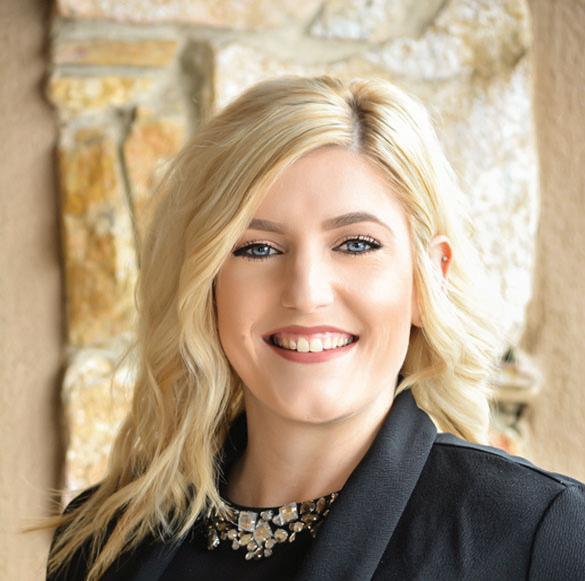SENIOR LIVING




















Hank Vander Veen
Kristina H . Hacker
ART DIRECTOR
Harold L . George
GRAPHIC DESIGNER
Sharon Hoffman
Chris Castro Beth Flanagan Karen Olsen
Corey Rogers
Melody Wann Charles Webber
Matheson























Hank Vander Veen
Kristina H . Hacker
ART DIRECTOR
Harold L . George
GRAPHIC DESIGNER
Sharon Hoffman
Chris Castro Beth Flanagan Karen Olsen
Corey Rogers
Melody Wann Charles Webber
Matheson



NOW THAT YOU’RE NOT SO BUSY TENDING TO A CAREER, RETIREMENT OFFERS A LONG-AWAITED OPPORTUNITY TO DELVE INTO NEW INTERESTS AND ACTIVITIES.
Find a fulfilling new hobby and you’ll foster a sense of purpose, while also enhancing your mental, physical and emotional health.
Hobbies like gardening, yoga and swimming promote physical activity, which is essential for sustaining strength, mobility and overall wellness. This kind of consistent physical engagement can help you fight off chronic illnesses, in-
crease energy levels and improve your cardiovascular fitness.
Creative pursuits such as painting, playing an instrument or crafting can be immensely rewarding and therapeutic. Or perhaps join in a community activity as a volunteer. You could apply your skills and knowledge to assist others, creating a sense of purpose and satisfaction. There are always opportunities, ranging from assisting at local food banks or local fundraisers to tutoring children. Consider joining a travel group tailored for seniors where you can go out on safe, well-organized excursions.
Stimulating your brain increases problem-solving abilities, improves memory and builds intellectual flexibility. Consider hobbies like reading or solving puzzles, which are beneficial for maintaining cognitive sharpness. Many retirees find joy in extending their education, whether through formal classes, self-directed study or online learning. Explore a new language, delve into history or take cooking lessons.
Begin by thinking about activities that you’ve enjoyed in the past or something you have always wanted to pursue. Create a list of potential hobbies and investigate each one to determine which aligns
best with your interests. Start with manageable tasks and progressively improve your skills and understanding. Check community center bulletin boards, social media posts and news sites for more information on classes and workshops, since they’ll provide opportunities to acquire new skills and connect with others who share similar interests. But establish realistic goals so you can sustain motivation and a sense of achievement. Many hobbies promote social engagement, which is vital for emotional well-being. Participating in clubs, classes or groups can spark new friendships, helping to combat feelings of isolation. Embrace the chance to try something new. You might just discover a passion you never knew was there.
HAVING TROUBLE HEARING? YOU’RE NOT ALONE: SOME 55% OF THOSE OVER 75 HAVE SOME SORT OF HEARING LOSS. IN ADULTS AGED 64-74, IT’S 22%.
There are many reasons why, but chief among them is the aging process itself. Presbycusis is diagnosed, and may involve changes to nerves used to hear, the blood flow to the inner ear or how the brain processes speech and sounds.
Presbycusis typically develops gradually, according to experts. Common indicators include challenges in hearing softer voices and difficulty understanding speech in a noisy place. Some find it hard to understand conversations over the phone. Sufferers may frequently ask friends and family to repeat themselves, wrongly perceive that others are not speaking loudly enough or mumbling,
and turn up the volume on televisions and radios to levels that are uncomfortable to everyone else.
In many cases, hearing loss could have been avoided. If your hearing is still in great shape, practice good ear health. Steer clear of loud noises and use ear protection. A healthy diet can also help prevent hearing loss. Look for foods that are rich in nutrients like omega-3 fatty acids, potassium, zinc and magnesium. Doctors usually recommend fish, leafy greens, eggs and bananas. If your hearing is starting to fail, see a doctor right away. Neglecting the problem could make it worse.
Hearing loss can lead to related symptoms such as fatigue, dizziness, vertigo and tinnitus. Several factors can worsen presbycusis, including diabetes, longterm exposure to loud noises, inadequate

circulation and certain medications. If left untreated, hearing loss can lead to strained social interactions. It’s also been associated with various mental health issues, including anxiety, depression, paranoia and cognitive decline.
Hearing aids are commonly recommended for older adults who need to re-
cover some of their diminished hearing, though they are not the only solution. Doctors may recommend medication or some form of aural rehabilitation to address what has always been a multi-faceted problem. Unfortunately, Medicare covers hearing tests but will not cover the expense of your hearing aids. You may have to use private funds to fill this gap. Some charitable organizations offer assistance to seniors.
Valley Oak Dental Group is a multispecialty group practice committed to excellence.
Our Pediatric Department provides a comfortable, caring atmosphere for your children.


We provide the latest General Dentistry procedures in a state-of-the-art dental suite.
Our Oral Surgery Department provides general anesthesia and I.V. sedation in a safe, professional environment.






MOST OLDER ADULTS TAKE MORE THAN ONE MEDICATION AS WE DEAL WITH MULTIPLE ISSUES ASSOCIATED WITH AGING. THE PRACTICE, KNOWN AS POLYPHARMACY, HOWEVER, PRESENTS ITS OWN SET OF RISKS.
Of course, medicine is prescribed in the hopes of achieving positive health results, managing individual chronic issues or enhancing the general quality of life. But these prescriptions may not interact well, creating adverse reactions. They can even have deadly consequences.
There’s a particular worry if you’re seeing multiple healthcare providers since mix-ups or miscommunication can occur. You might also over-medicate accidentally, by inadvertently taking too many pills or at the wrong dosage. Experts are paying the closest attention to those who take five or more medications. It’s a common practice among those with so-called “multi-morbidity,” meaning two or more coexisting chronic conditions. With that many issues, doctors may come up with competing treatment strategies. Those taking five or more medications are at an elevated risk of falls, disability, frailty and increased mortality.
So how do you know if you’re over-medicating? Seniors at greatest risk include those
with more than one prescribing doctor, those with chronic mental health issues and residents in nursing homes or other long-term care facilities. Closely follow recommended doses, be on the lookout for inadequately updated medical records, and monitor automated prescription refill services.
Take part in medication reconciliation, where you’ll compile a detailed list of all medications — including prescription drugs, overthe-counter meds, supplements and vitamins. Then regularly review and update this list with your healthcare providers, discussing any potential drug interactions or other concerns. Be open about any worries or side effects that you may encounter.
These discussions can involve doctors, nurses, your pharmacist or other healthcare providers who can help you better understand the need for each medication and its effectiveness. Specifically ask them to identify possible druginteractivity issues. You can explore ways to simplify your regimen — or even discontinue unnecessary medications.
Once you’ve reviewed everything, follow all medication schedules, including correct dosing and storage conditions. You’ll still need to be on the lookout for potential side effects. But by collaborating closely with healthcare providers, you can now move forward with new confidence.


A high cost of living and advancements in medicine that have contributed to longer life expectancies would seemingly compel individuals to work longer, but data indicates the average professional is retiring shortly after turning 60. Data from the 2024 MassMutual Retirement Happiness Study indicates that the average retirement age among American retirees is 62. ThatÕs in spite of the fact that pre-retirees and retirees who participated in the study indicated that 63 is the ideal retirement age. Canadians are staying in the workforce a good deal longer, as Statistics Canada reports the average retirement age across Canada in 2023 was 65.1. That disparity could be due to the Canada Pension Plan (CPP), which replaces part of retireesÕ income with a monthly, taxable benefit. The Govern ment of Canada reports the standard age to start the CPP is 65.





RETIREMENT MEANS THE END OF DECADES OF SAVING — AND THE BEGINNING OF EFFECTIVELY MANAGING YOUR HARD-EARNED MONEY.
Preparing for it all requires consistent saving during your working years but also a well-thought-out retirement strategy to ensure financial security late in life. Creating a smart withdrawal plan is essential as retirees move from accumulating wealth to drawing from their savings. Start by evaluating your various retirement accounts, since many seniors have a mix of traditional or Roth IRAs, pensions, 401(k) and Social Security benefits. Each account type comes with its own tax implications and rules for withdrawal, and that can directly influence the timing and tax consequences of a withdrawal.
The order in which you withdraw from different retirement accounts can increase their tax efficiency, while helping you maintain financial stability throughout retirement. But there is no universal approach to these withdrawals since individual needs, timelines and resources can vary so much. Some general principles can serve as a starting point, but you should tailor things to fit your own personal circumstances.
Focus on taxable accounts first, since this allows investments in tax-free or taxdeferred accounts to continue growing. You’ll be extending the life of your savings. As a general guideline, after initially accessing taxable accounts, continue to tax-deferred accounts such as traditional IRAs and 401(k)s, and finally to tax-free accounts like Roth IRAs.

Remember that withdrawing funds from tax-deferred accounts raises your taxable income, and that could potentially push you into a higher tax bracket. That, in turn, could subsequently increase your Medicare premiums. Early retirees receiving subsidies for Affordable Care Act health insurance should also be cautious about withdrawals from taxable
accounts, since these actions can jeopardize your subsidy eligibility.
Before withdrawals, evaluate your expected living expenses and healthcare costs, factoring in inflation. Factor in investment returns — and life expectancy. Earlier retirement, after all, will require
more savings. Financial planners suggest maintaining a steady, sustainable withdrawal rate of between 3% and 4% of the total retirement portfolio, making annual adjustments for inflation. This kind of conservative withdrawal strategy can reduce the risk of depleting your savings while helping to ensure your financial stability.







YOU’VE FINALLY GOTTEN TO THE AGE WHERE YOU HAVE THE TIME AND MONEY TO TRAVEL. GET READY TO EXPLORE THE WORLD!
Just remember that any big trip requires thoughtful preparation.
After you’ve packed all the essential clothing for your trip, make sure you have all your essential personal documents on hand and in an easily accessible place. You should always have a valid government-issued form of identification. Some trips may require a passport. Bring rel-
evant health insurance information and copies of medical records, as needed. In some cases, you may need a separate travel insurance policy for international trips, since Medicare and some private insurance plans don’t cover services outside the United States.
In the modern age, most travel options are designed to be accessible, even for those who need special equipment or assistance. Still, you may want to inform the airline, hotel, cruise line and other transportation providers about any assistance needs and carry-on mobility aids or medical devices. They can provide more
information on the available assistance while ensuring safe travel for your invaluable medical equipment.
If you can walk short distances but find the distances between airline terminals challenging, airlines are obligated to offer complimentary transportation for senior travelers. Passengers using wheelchairs cannot be left unattended for more than 30 minutes. Airlines must facilitate pre-boarding for those who may need additional time. Simply notify the gate agent when you arrive.
If you travel or plan to travel frequently, consider enrolling in programs such
as TSA PreCheck or Global Entry to streamline the security process. TSA PreCheck allows U.S. citizens, nationals and lawful permanent residents to expedite their security screening by paying a fee and verifying their identity through the TSA program. Global Entry is designed for travelers who plan to enter and exit the U.S. from other countries. Clear is another form of pre-boarding clearance sponsored for a fee by a credit card company. For more information on eligibility or to apply, visit tsa.gov. Additionally, travelers with concerns about the security screening process can reach out to the TSA Cares hotline at 855-787-2227 for assistance.
Many people see their careers as one of their defining characteristics. Children are often asked what they want to be when they grow up, and as adults they will likely be asked ÒWhat do you do for a living?Ó more times than they can remember. Work is undoubtedly a major component of life for most people from the time they leave school to the day when they retire. And a growing number of adults value work so much that they pivot to second careers.
A phenomenon known as ÒunretirementÓ occurs when people who have previously retired return to the workforce. A 2010 paper published in the Journal of Human Resources found nearly 50 percent of retirees followed a nontraditional retirement path that involved partial retirement or unretirement. According to a recent Retirement Saving & Spending Study from T. Rowe Price, around 20 percent of retirees are working either full- or part-time, while 7 percent of study respondents are looking for employment. Some people return to work for financial reasons while others seek the social and emotional benefits employment can bring. But individuals mulling a return to work or those currently working but trying to determine
a second act should not feel beholden to previous career paths. A second trip around the employment block can involve an entirely different line of work. The following are some things to look for in a second act.
FLEXIBILITY:
Choose a career path that enables you to set your own schedule or possibly work part-time if that is your preference. This way you can still reap some of the benefits of retirement, including the flexibility to travel.
SOCIAL INTERACTION:
Adults may lose daily opportunities to be social when they retire, which can compound feelings of isolation common among retirees. Consider a second career that lets you interact with a number of people and continue to build relationships and a good network.
PERSONAL PASSIONS:
Reflect on what you might do for work if money were no object. This may help you narrow down new opportunities that are in line with your interests and passions. Find a job that utilizes your skills and experience and meshes with your interests. A former graphic artist, for example, may decide to teach design to young people.

Many retirees spent years in high-stress corporate environments where bottom lines may be more important than the bigger picture. Shifting to a career in the nonprofit sector can be a personally fulfilling job that utilizes skills learned in the corporate world.
CONSULTING OR CONTRACT WORK:
If youÕre a retiree who loved your job, you might want to have a second career as a consultant or contractor in the same field.
A number of retirees ultimately explore second careers. Finding a match may be easier than one could have imagined.
We put you first in everything we do, which is why we’ve won the “Best in Manteca for Senior Living” award for the fourth time running. The Commons at Union Ranch is a well-appointed senior living community of lush grounds, spacious apartments, a continuum of exceptional care, and friendly, attentive staff. Residents enjoy an active lifestyle with our fitness program, MBK Cuisine’s all-day dining, and a robust calendar of activities for an engaging life full of possibilities.



HEALTH CARE ASSISTANCE TO SENIORS, IT DOESN’T COVER EVERYTHING.
Understanding which services are and are not part of the Medicare plan can help you put a plan in place before you have a pressing health issue.
Medicare typically does not cover routine eye exams, eyeglasses or contact lenses, except in specific situations like post-cataract surgery and diabetic eye exams. Consider private vision insurance plans or the discounted vision services provided by organizations like AARP to manage these costs.
Most dental procedures are not covered — including routine cleanings, dentures and fillings. Seniors may need to obtain separate dental insurance or find low-cost dental clinics and discount programs.
Hearing aids are not covered, so many seniors end up paying out of pocket. Others turn to supplemental insurance plans that include hearing aid benefits or take advantage of community programs that offer financial support for these essential devices.
Medicare covers certain treatments for foot conditions, but does not include routine foot care services. Look into Medicare Advantage plans that may offer enhanced podiatry coverage. Community health clinics may also provide free or low-cost services.
There is only limited coverage for nurs-

ing home care. Specifically, short-term skilled nursing care in a nursing home or rehabilitation facility is covered after a hospital stay, but long-term custodial care or assisted living expenses are not. Look into your Medicaid eligibility or long-term care insurance options.
Medicare provides coverage for spinal manipulation and certain chiropractic services related to specific medical conditions, but it does not extend to compre-
hensive ongoing chiropractic care.
Massage therapy for general relaxation or wellness is usually not covered by Medicare. Look for practitioners who offer senior discounts or consider other therapies covered by Medicare like acupuncture and physical therapy.
Medicare does not reimburse for elective cosmetic surgeries or procedures performed solely for aesthetic reasons.
You’ll have to explore private financing options or consider non-surgical cosmetic treatments.
Healthcare services obtained outside the United States are not generally covered by Medicare. Exceptions are made only for rare emergency situations or specific cases. Seniors who frequently travel or live part-time elsewhere should consider travel insurance or international health insurance.







IT’S ESPECIALLY IMPORTANT TO PRIORITIZE EMOTIONAL AND MENTAL WELL-BEING AS WE GROW OLDER.
Meditation and mindfulness can be effective in alleviating stress, enhancing your quality of life and boosting your overall wellness. These practices are centered on relaxation and being present in your own life, and they can be seamlessly incorporated into everyday life. Studies
linked to chronic stress like headaches and muscle tension.
To practice mindfulness, start by focusing on your breathing. Locate a quiet spot where you can sit comfortably, close your eyes and concentrate. Take a deep breath in through your nose, hold it briefly and then exhale slowly through your mouth. Focus on the feeling of your breath, allowing all your other thoughts


















